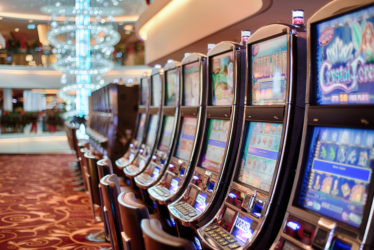 German gaming giant Gauselmann Group has reported a 6.7% year-on-year rise in revenue for its 2019 financial year, despite its business being impacted by the novel coronavirus (Covid-19) pandemic.
German gaming giant Gauselmann Group has reported a 6.7% year-on-year rise in revenue for its 2019 financial year, despite its business being impacted by the novel coronavirus (Covid-19) pandemic.Revenue for the 12-month period amounted to €2.56bn (£2.31bn/$3.04bn), up from €2.41bn in the previous year.
International markets were the primary source of income for Gauselmann during the year, with revenue in this segment rising 14.4% to €1.58bn. However, the group saw revenue from Germany decline 3.7% to €998.0m.
The group said that the international growth, and decline in German revenue, followed a trend that had been observed over a number of years.
Gauselmann founder and chief executive Paul Gauselmann added that sales from outside Germany increased continuously before the novel coronavirus (Covid-19), with 60% of all sales in FY19 generated outside of its native Germany.
“This reduced our dependency on our core market of Germany, where the legal framework has unfortunately deteriorated for years,” Gauselmann said.
Gauselmann did not publish a full breakdown of figures for the year, but did reveal that it was able to expand its global workforce by 451 employees to a total of 13,846.
According to CEO Gauselmann, the steps taken by the group during the height of Covid-19 in Germany enabled it to keep all staff in work. This included shutting down all production and sales activities across its business.
In total, 13,500 employees were put on furlough, while all board members and company managers – around 60 people – agreed to waive 50% of their salary for the duration of the shutdown.
Development departments around the world continued to operate on a part-time basis so that staff could focus efforts on products for the future. Employees then started going back to work on a full-time basis from late April.
“This enabled us to focus on maintaining the almost 14,000 jobs in full, despite the Europe-wide closure of our 800 gaming venues, the many hundreds of sports betting shops and the 10 German casino locations and the casinos on cruise ships in the company,” Gauselmann said.
Other key developments included Gauselmann consolidating the management of all global sales activities from its Merkur Gaming headquarters site in Lübbecke, Germany.
More recently, Gauselmann’s Merkur Sportwetten subsidiary last month boosted its stake in Belgian sports betting operator Betcenter Group to 74.9%, as part of plans to grow its omni-channel business in the country.












